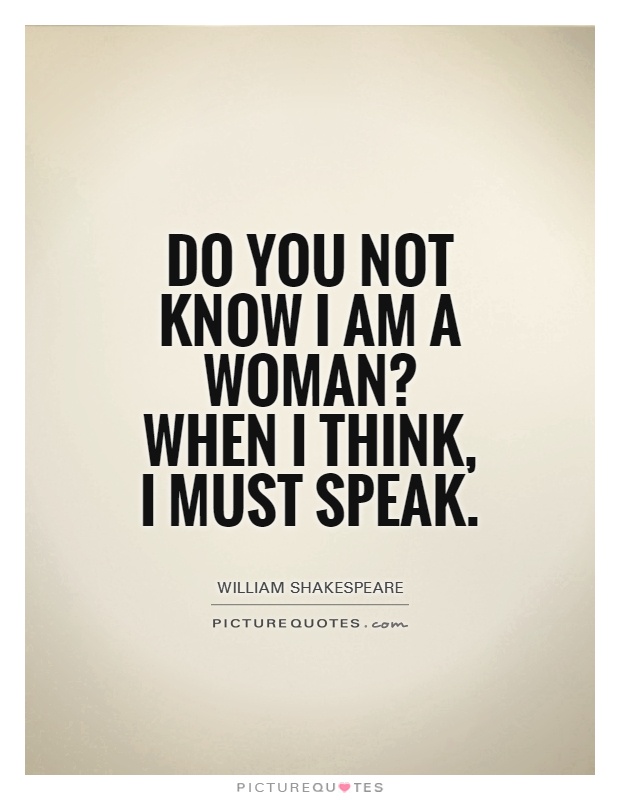Do you not know I am a woman? When I think, I must speak

Do you not know I am a woman? When I think, I must speak
In the world of William Shakespeare, women were often portrayed as submissive, obedient, and passive beings. However, there were also instances where female characters defied societal norms and spoke out against the injustices they faced. One such powerful declaration comes from the character of Portia in "The Merchant of Venice" when she says, "Do you not know I am a woman? When I think, I must speak."This line is a bold assertion of Portia's agency and intelligence. She refuses to be silenced or overlooked simply because of her gender. In a time when women were expected to be seen and not heard, Portia's words carry a revolutionary message. She demands to be heard and respected for her thoughts and opinions, regardless of her gender.
Portia's declaration also highlights the theme of gender roles and expectations in Shakespeare's plays. Throughout his works, women are often portrayed as secondary to men, with limited agency and power. However, characters like Portia challenge these stereotypes and assert their own autonomy.












 Friendship Quotes
Friendship Quotes Love Quotes
Love Quotes Life Quotes
Life Quotes Funny Quotes
Funny Quotes Motivational Quotes
Motivational Quotes Inspirational Quotes
Inspirational Quotes